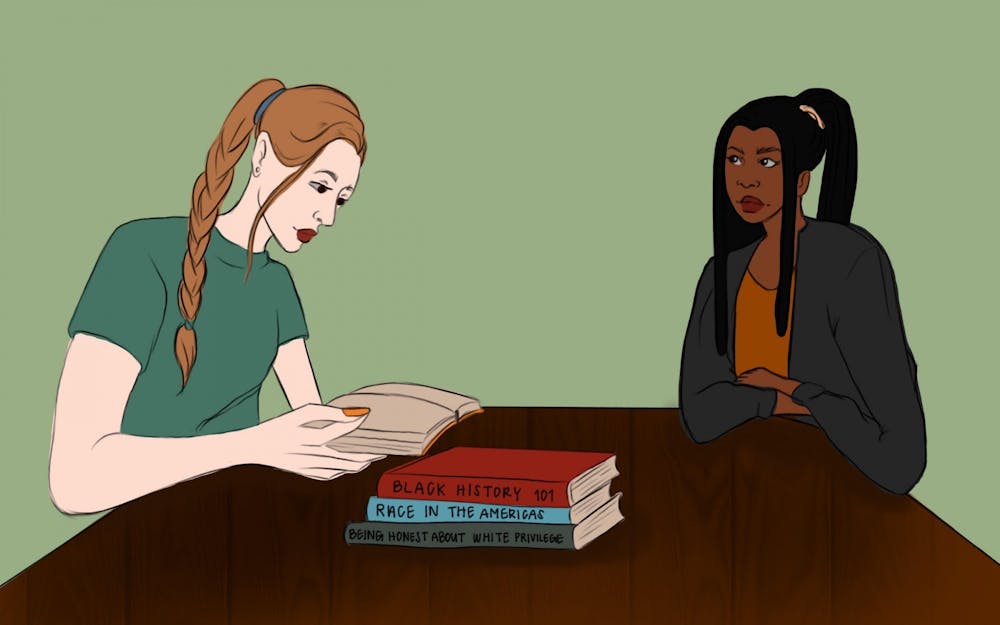I have been routinely asked questions about my Blackness. Being the only Black kid in a very white social circle, I was often the go-to person whenever the subject of race was brought up. When I came out as gay in high school, my social circle remained the same — I had to pull double duty, now speaking on both race and sexuality. Only recently, while browsingTwitter, did I read the words I wish I had known back then: "It's not my job to educate you."
I've heard the phrase thrown around for a few years now. I've seen it from accounts on social media to large publications like Glamour and Salon. The phrase is usually used in the context of debate or when a person is simply tired of explaining identity concepts to other people. What it means, usually, is no one person should be responsible for another's education of sensitive topics, whether it is regarding race, sexuality, gender or otherwise. A Black person doesn't owe a white person an explanation of things related to race, be it something as large as the effect of slavery or something smaller — like why you shouldn't touch a Black woman's hair.
Most discussions of this mentality delve deeper into the implicit entitlement of the person asking the question, who may think they are owed an answer or explanation. While it's important to not burden others with unwanted questions, I thought this phrase pointed out something else entirely: I'm not a teacher.
I didn't, and still don't, know all there is to know about race or sexuality. From my lived experience, I can describe a number of incidents where my race or my sexuality affected my life, but I couldn't tell you firsthand what effects Jim Crow laws still have today. Just as my peers would ask me these big questions about race, I had to educate myself by seeking those answers in books or online. While they might have assumed I knew the answer to their questions, I didn't. If I did know the answer, I mostly likely acquired the knowledge from someone else who was willing to share through their novels or essays. If I had to learn that way, then the peers asking me questions can do the same.
Even then, there's fair critique to simply saying, "It's not my job to educate you," and moving on. If a person is genuinely interested in learning about the nuances of race, it would be more fruitful to just explain things to them. Even worse, if a person believes a falsehood that you could correct, explaining would potentially stop that person from believing later falsehoods. If one wants to be an activist for equal rights, surely you'd want to teach others, right?
Still, it's not my job to speak for whole communities. I never volunteered nor signed up to be an activist, but in wanting to protect myself and others like me, I was made to be one. I'm not a teacher or an educator — I was brought into this world just as naive and ignorant as anyone else.
I had to learn about my culture. My efforts didn't stop at just asking a friend, and if I did ask someone about my culture, they often didn't have the whole answer. Making the effort to seek education on sensitive topics isn't asking for an explanation from the nearest minority person. Educating yourself on identity issues is hard work. It's not my job to do it for you.






